What are the guidelines for writing a self-review by lower secondary school students in Vietnam?
What is the self-review form applicable to lower secondary school students in Vietnam?
In practice, the students' self-review is often used to reflect on violations of school regulations. The purpose of the self-review is to help students recognize their shortcomings and mistakes to learn from them and improve.
The self-review for students is usually handwritten by the student based on available forms or self-composed.
The self-review form applicable to students is as follows:
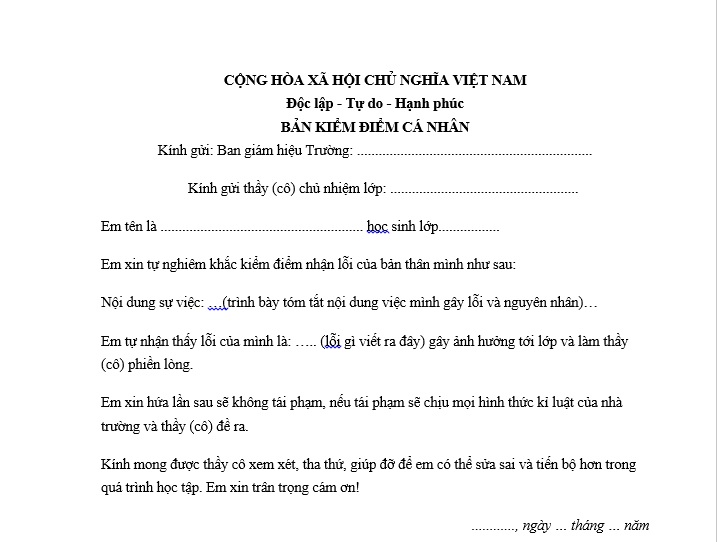
Below are some of the latest self-review forms applicable to lower secondary school students:
- Self-review form... Download
- Self-review form... Download
What are the guidelines for writing a self-review by lower secondary school students in Vietnam?
Writing a self-review may make many students feel anxious. However, you can confidently complete this task under detailed documents and specific guidelines.
Below are guidelines for writing a concise and standard self-review by lower secondary school students, helping you express sincerity, draw lessons, and seek forgiveness from teachers:
Usually, the self-review written by lower secondary school students will include the following components:
(1) To
(2) Information of the person writing the self-review form
(3) Reason for writing the self-review form
(4) Explanation of the incident
(5) Commitment
(6) Student's signature
Based on these contents, students can complete the self-review as follows:
(1) To
Clearly indicate the recipient of the self-review form. In many cases, it will be addressed to the School Management Board or the homeroom teacher. Sometimes, just addressing the subject teacher is sufficient.
Depending on who requests the self-review form, the student will fill in the appropriate addressee.
For example:
To the Management Board of .... School
To the Homeroom Teacher of the class...
(2) Information of the person writing the self-review form
Students introduce themselves to the teacher receiving the self-review form. Basic information includes: Full name, class name, school name, etc.
For example:
My name is: Do Van M, a student of class 8A...
(3) Reason for writing the self-review form
When writing the self-review form, the reason part is indispensable. Students need to clearly state why they are writing the self-review form and then explain specifically why the incident occurred...
For example:
Reason for writing the self-review form:
- I skipped school without permission on Tuesday morning;
- I was late on October 14, 2023;...
(4) Explanation of the incident
After stating the reason for writing the self-review form, the next section should be an explanation of the cause.
Students will narrate in their own words the events that occurred on the day of the violation and the cause of the violation.
For example:
On the night of ..., I had a high fever, so I woke up late the next day. That morning I stayed home with my grandmother, who is elderly and not familiar with using a phone and does not have the contact number to inform the teacher. Therefore, on the morning of ...., I went to school late without prior notice to the teachers.
(5) Commitment
The promise or commitment at the end of the self-review form is used to demonstrate the student's awareness of their violation and commitment not to repeat it.
For example:
+ I acknowledge that my violation is wrong. I promise not to repeat it, and if I do, I will be dealt with according to the law and school regulations.
+ I promise not to repeat it in the future, and if I do, I will accept all disciplinary actions set by the school and the teacher.
(6) Student's signature
Students should sign and clearly state their full name at the end of the self-review form.
Then review the content and submit it to the teacher.
Note: The information is for reference purposes only!
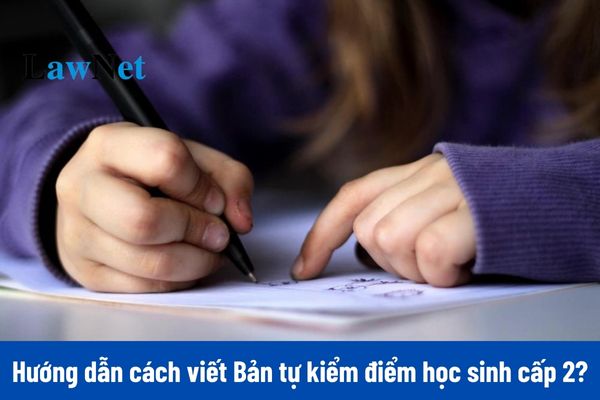
What are the guidelines for writing a self-review by lower secondary school students in Vietnam? (Image from the Internet)
What are prohibited acts for lower secondary school students in Vietnam?
According to Article 37 of the Charter of Lower Secondary Schools, Upper Secondary Schools, and Multi-level Schools issued with Circular 32/2020/TT-BGDDT, prohibited acts for lower secondary school students in Vietnam include:
- Disrespect the dignity, honor or bodily integrity of teachers, officials and staff of their schools, other people and other students.
- Act dishonestly in learning, examinations or admission process.
- Buy, sell or use alcohol, tobacco, drugs, other stimulants, firecrackers or explosives.
- Use mobile phones and other devices in class for purposes other than learning and without the teacher's permission.
- Fight or disrupt public or school order or security.
- Use or exchange cultural products that incite violence or contain indecent materials; use toys or play games that impede their own healthy development.
- Students shall not commit other prohibited acts provided for by regulations of law.
What are the duties of lower secondary school students in Vietnam?
According to Article 34 of the Charter of Lower Secondary Schools, Upper Secondary Schools, and Multi-level Schools issued with Circular 32/2020/TT-BGDDT, duties of lower secondary school students in Vietnam include:
- Learn and train according to curricula and education plans of their schools.
- Respect their parents, officials, teachers and staff of their schools, and those older than them; maintain solidarity and mutual support in learning and training; conform to the charter and rules of their schools; and abide by the law.
- Take exercises and maintain personal hygiene.
- Participate in group activities of their schools and classes, Ho Chi Minh Young Pioneer Organization and Ho Chi Minh Communist Youth Union; help their families, join physical and social activities and environmental protection activities, and maintain traffic order and safety.
- Protect school and public property; contribute to fostering, preservation and enhancement of school traditions.
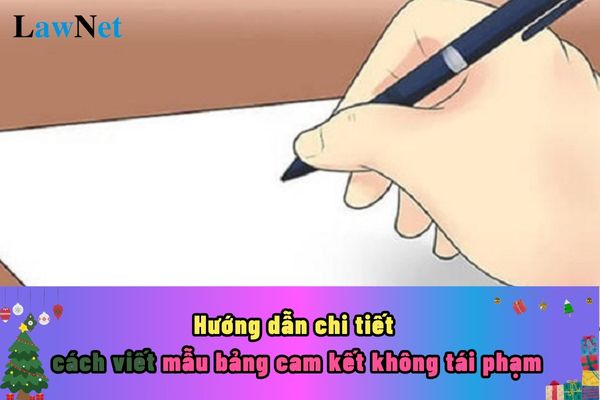

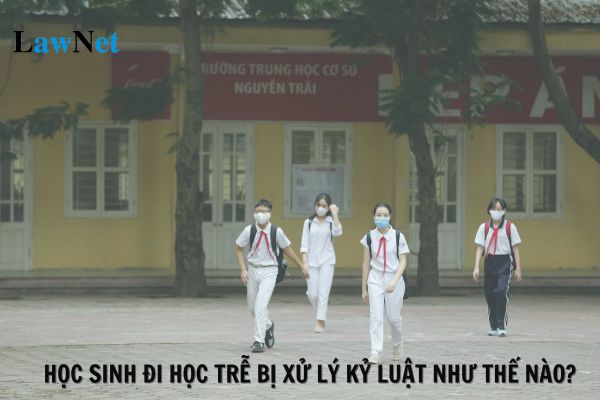
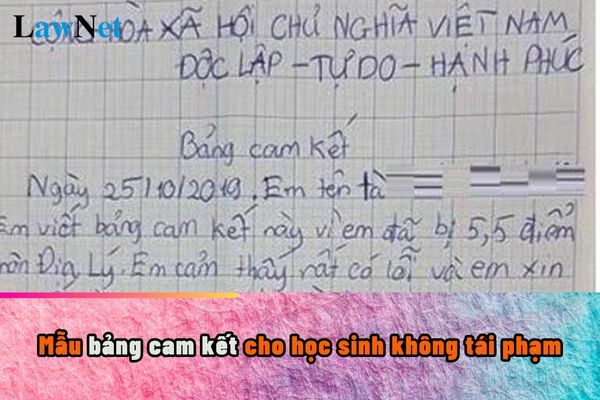
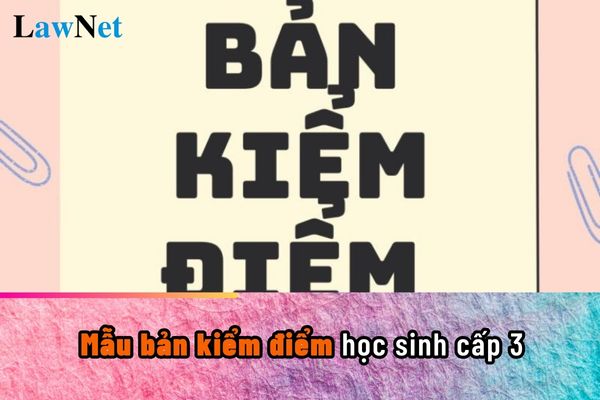
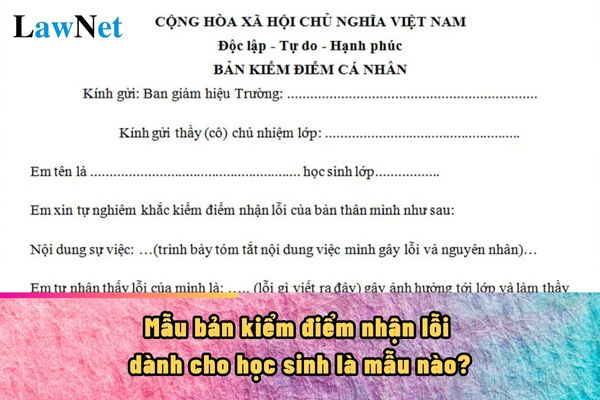
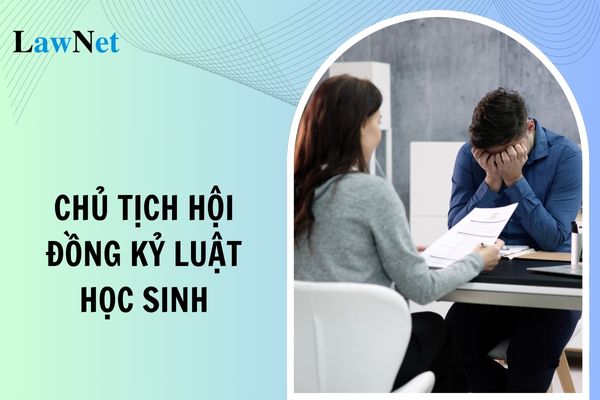
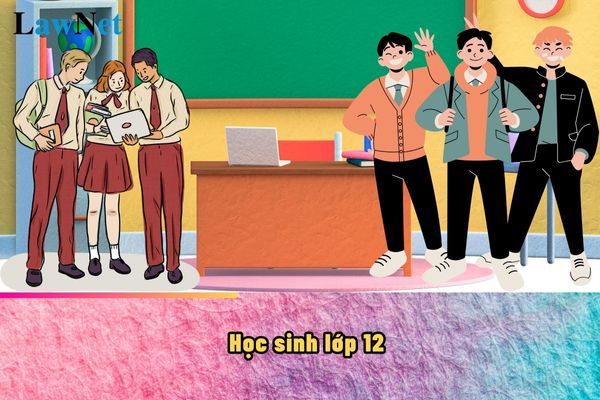
- What is Countdown? Where will Countdown 2025 take place in Vietnam? When will students in Vietnam take the National High School Graduation Exam after the Lunar New Year holiday in 2025?
- What is Measles? What are the requirements for school medical staff in Vietnam?
- What are details of the Table of Length Measurement Unit Conversion? When do students in Vietnam study the Table of Length Measurement Unit Conversion?
- What are causes and consequences of the First World War? What standards must grade 8 students in Vietnam meet when learning about the First World War?
- What is the Law of Conservation of Momentum? What are examples of the application of the Law of Conservation of Momentum?
- Plan for the implementation of the Scheme to support students in starting a business by 2025 of the education sector for the school year 2024-2025 in Vietnam
- What is the template of the Report for action month for gender equality in Vietnam? What are regulations on educational activities included in the action month for gender equality in Vietnam?
- What are 4 methods for establishing economic-technical norms in the field of education and training in Vietnam?
- What are details of the situation of Vietnam after the 1954 Geneva Conference on Indochina? What are principles for textbook selection in Vietnam?
- Vietnam: What are the simple and easy-to-remember English stress rules? What are the outstanding features of English in education?

